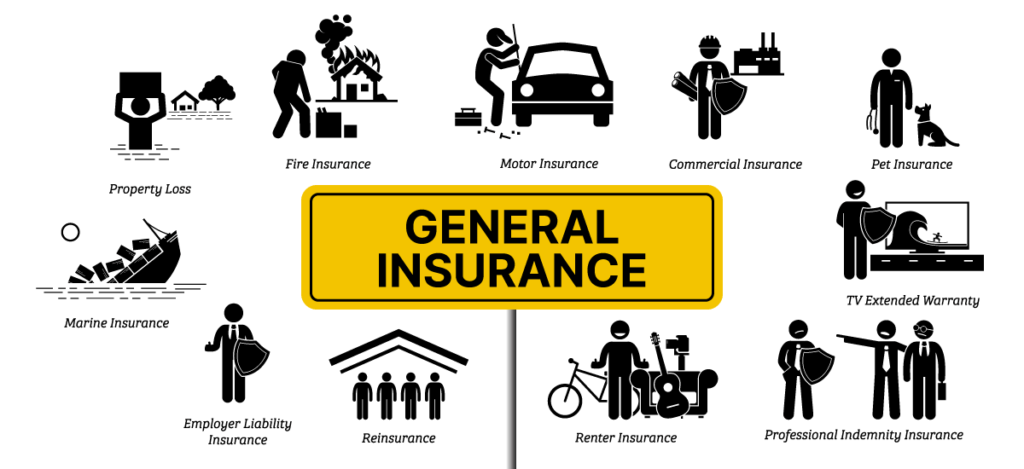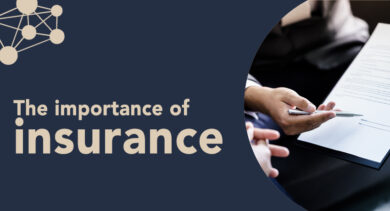Types of Insurance
Insurance plays a crucial role in our lives, providing financial protection and peace of mind against unexpected events. In a world where uncertainties abound, understanding the various types of insurance available is essential for safeguarding ourselves, our loved ones, and our assets. Let’s explore the main types of insurance and their significance.

Health Insurance: A Safety Net for Your Well-Being
Health insurance is one of the most vital forms of insurance, as it covers medical expenses that can otherwise lead to significant financial strain. With rising healthcare costs, having adequate health insurance is crucial.
Types of Health Insurance
- Employer-Sponsored Insurance: Many people receive health coverage through their jobs, where employers typically pay a portion of the premiums, making it more affordable.
- Government Programs: Medicare and Medicaid are essential for specific groups, including seniors and low-income individuals, ensuring they have access to necessary medical care.
- Individual Plans: For those who are self-employed or whose employers don’t offer insurance, individual plans allow them to purchase coverage tailored to their needs.
- Short-Term Health Insurance: This type of insurance provides temporary coverage during gaps in health insurance but often has limited benefits.
Importance of Health Insurance
Having health insurance is crucial not just for emergencies but also for preventive care. It ensures that individuals can seek medical attention without the fear of overwhelming costs, leading to better health outcomes overall.
Auto Insurance: Driving with Confidence
Auto insurance protects drivers and passengers from financial loss due to car accidents. It’s not just a legal requirement in most states; it’s also essential for financial security on the road.
Key Components of Auto Insurance
- Liability Coverage: This basic form of insurance covers damages you may cause to other people and their property in an accident.
- Collision Coverage: This helps pay for repairs to your own vehicle after a collision, regardless of who is at fault.
- Comprehensive Coverage: This protects against non-collision-related incidents, such as theft, vandalism, or natural disasters.
- Uninsured/Underinsured Motorist Coverage: This ensures you are protected if you are in an accident with someone who doesn’t have adequate insurance.
Why Auto Insurance Matters
Auto insurance not only meets legal obligations but also provides a safety net that helps drivers recover financially after an accident, allowing them to get back on the road with confidence.
Homeowners Insurance: Protecting Your Sanctuary
Homeowners insurance is essential for anyone who owns a home, providing coverage for the physical structure, personal belongings, and liability in case someone is injured on your property.
Coverage Details
- Dwelling Coverage: Protects the home’s structure from damages caused by fire, theft, and certain natural disasters.
- Personal Property Coverage: Covers the loss or damage of personal items, like furniture and electronics.
- Liability Protection: Offers financial protection if someone is injured on your property or if you accidentally damage someone else’s property.
- Additional Living Expenses: Covers costs incurred for temporary housing if your home becomes uninhabitable due to a covered loss.
The Significance of Homeowners Insurance
Homeowners insurance is not just a legal requirement; it safeguards one of the most significant investments many people make. It ensures that you can recover from unexpected events and protects your family’s future.
Life Insurance: Securing Your Loved Ones’ Future
Life insurance provides financial protection to your beneficiaries in the event of your death, helping cover funeral costs and ensuring your family can maintain their standard of living.
Types of Life Insurance
- Term Life Insurance: This policy offers coverage for a specified term (typically 10 to 30 years) and pays a death benefit if the insured passes away during that time.
- Whole Life Insurance: This provides lifelong coverage and includes a savings component that builds cash value over time.
- Universal Life Insurance: A flexible policy that combines life insurance with an investment savings element, allowing for adjustments in premiums and death benefits.
The Importance of Life Insurance
Life insurance is particularly crucial for individuals with dependents. It ensures that loved ones are financially secure, even in the event of the policyholder’s untimely death.
Business Insurance: Protecting Your Enterprise
For business owners, having the right insurance is essential to safeguarding their investments and ensuring long-term success.
Common Types of Business Insurance
- General Liability Insurance: Covers claims of bodily injury, property damage, and personal injury related to business operations.
- Property Insurance: Protects physical assets like buildings, equipment, and inventory from damage or loss.
- Workers’ Compensation Insurance: Provides financial assistance to employees who are injured on the job, covering medical expenses and lost wages.
- Professional Liability Insurance: Also known as errors and omissions insurance, this protects businesses from claims of negligence or inadequate work.
The Value of Business Insurance
Business insurance allows entrepreneurs to take risks and innovate without fearing catastrophic financial loss. It provides a safety net that promotes growth and stability.
Conclusion: The Necessity of Insurance in Modern Life
Insurance is not just a safety net; it is a vital part of financial planning and risk management. From health and auto insurance to homeowners and life insurance, each type serves a specific purpose in protecting individuals and families from unforeseen events. Understanding these various types of insurance empowers us to make informed decisions and live our lives with greater confidence, knowing we have the protection we need in place.




